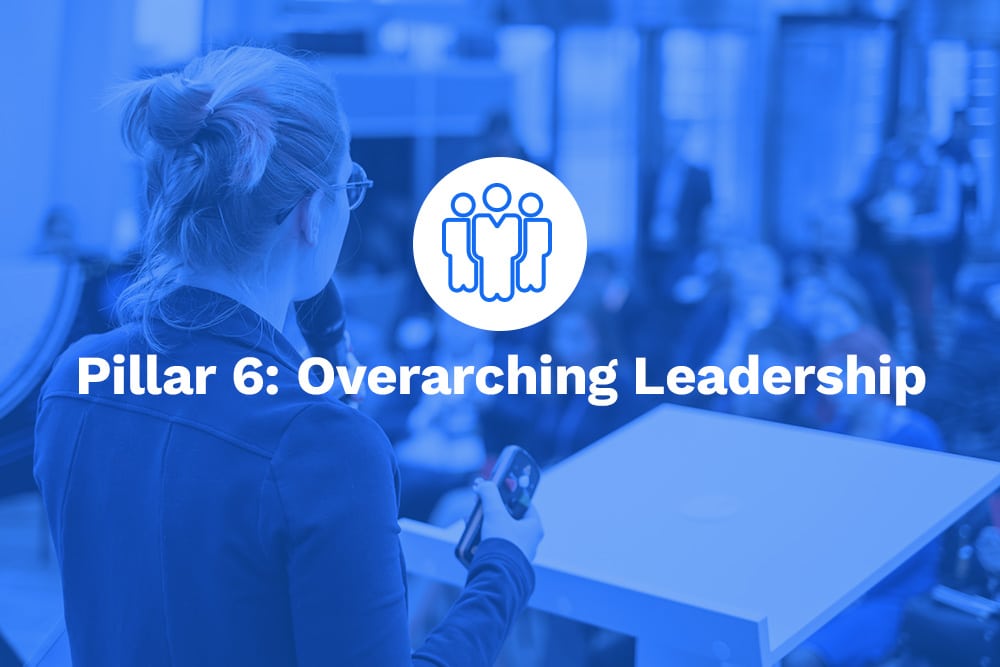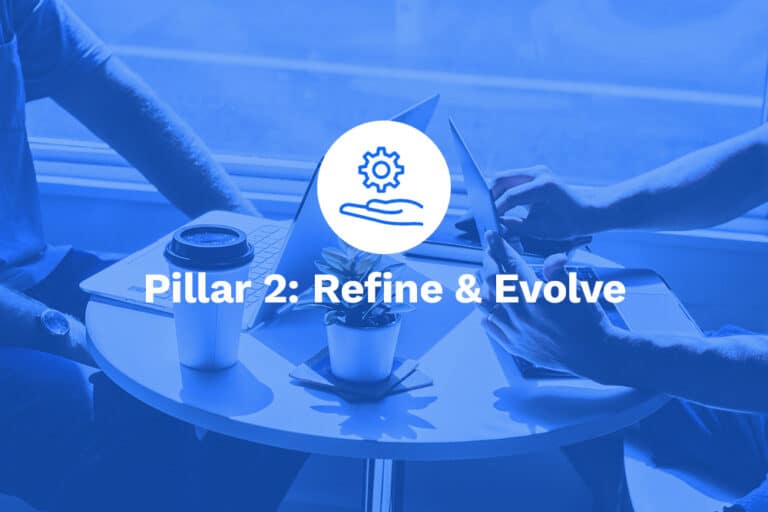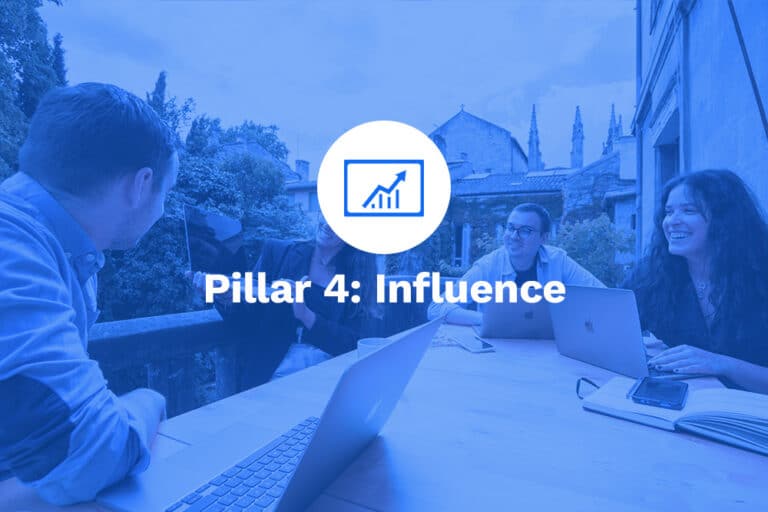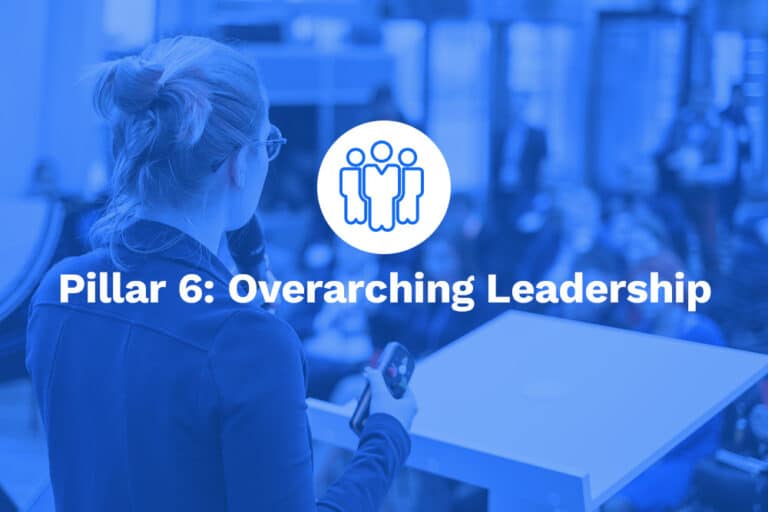Pillar 6 Overarching Leadership: Organizational Leadership
Competency Overview
Think organizational leadership is only for executives? Think again! Sure, if you’re an executive reading this, then polishing this attribute and skill is paramount for optimal performance. However, you don’t have to be an executive to benefit from mastering organizational leadership. At Leader Loop, we know that mastering organizational leadership can elevate your career at any level. This skill isn’t just about leading an organization; it’s about steering through change, anticipating shifts, and keeping your team agile and adaptable. While primarily for those at the executive level, understanding these principles can help you better communicate with senior leaders, manage projects more effectively, and develop this crucial skill for future roles. Organizational Leadership involves the ability to lead organizational change, anticipate and proactively respond to rapidly changing conditions, and maintain a flexible and agile mindset and processes within the organization.
According to a study by McKinsey, organizations that excel in leadership development are 2.4 times more likely to hit their performance targets (McKinsey, 2023). This highlights the significant impact of strong organizational leadership on achieving business success.
Leveling Up
Mastering Organizational Leadership sets you apart as a leader who can drive and manage change, anticipate future trends, and maintain an agile organization. This competency helps you lead effectively through transitions, respond proactively to market changes, and keep your team adaptable. Developing these skills can significantly boost your career, as organizations highly value leaders who can guide them through uncertainty and ensure continued success.
Why It Matters
- Leading Organizational Change: The ability to lead organizational change and adapt to business needs ensures that your organization remains competitive and responsive.
- Proactive Response to Change: Anticipating and proactively responding to rapidly changing conditions helps the organization stay ahead of the curve and capitalize on opportunities.
- Maintaining Agility: Keeping the organization in a flexible and agile mindset and processes ensures that the team can quickly pivot and adapt to new challenges and opportunities.
Competency in Action
- Ability to Lead Organizational Change and Adapt to Business Needs
- Common Pitfalls to Avoid: Resisting change, failing to communicate effectively during transitions, and not involving key stakeholders can impede successful change.
- Benefits: Leading organizational change and adapting to business needs ensures that the organization remains competitive and responsive to market demands.
- Anticipate and Proactively Respond to Rapidly Changing Conditions
- Common Pitfalls to Avoid: Reacting too late, ignoring market signals, and failing to plan for contingencies can lead to missed opportunities.
- Benefits: Anticipating and proactively responding to rapidly changing conditions helps the organization stay ahead of the curve and capitalize on opportunities.
- Keeps Organization in Flexible Agile Mindset & Processes
- Common Pitfalls to Avoid: Rigid processes, resistance to new ideas, and a lack of flexibility can stifle innovation and adaptability.
- Benefits: Keeping the organization in a flexible and agile mindset and processes ensures that the team can quickly pivot and adapt to new challenges and opportunities.
How to Enhance This Competency
- Develop Change Management Skills: Enhance your ability to lead change effectively by learning change management principles and techniques.
- Actionable Tip: Use frameworks like Kotter’s 8-Step Process or ADKAR (Awareness, Desire, Knowledge, Ability, Reinforcement) to guide organizational change efforts.
- Stay Informed and Plan Ahead: Continuously monitor market trends and develop proactive strategies to respond to potential changes.
- Actionable Tip: Conduct regular environmental scans and SWOT analyses (Strengths, Weaknesses, Opportunities, Threats) to stay ahead of market shifts.
- Foster a Culture of Agility: Encourage a flexible and adaptive mindset within your team to ensure readiness for change.
- Actionable Tip: Implement regular training and workshops focused on agile methodologies and encourage continuous improvement practices.
Unlocking Potential
- Enhanced Change Leadership: Mastering Organizational Leadership enhances your ability to lead and manage change effectively.
- Career Growth: Strong organizational leadership skills are highly valued by organizations and can lead to career advancement and leadership opportunities.
- Proactive Market Response: Anticipating and responding to market changes ensures that the organization stays competitive and seizes opportunities.
- Sustained Agility: Maintaining a flexible and agile organizational mindset ensures that your team can quickly adapt to new challenges and opportunities.
By developing and honing the competency of Organizational Leadership, you ensure that you can lead effectively through change, anticipate future trends, and maintain an agile organization. This skill is essential for mastering your role and evolving in your career, preparing you for leadership positions where strategic foresight and adaptability are crucial.
Sources:
- McKinsey, 2023
- Global Leadership Forecast, 2023
About Leader Loop: Leader Loop crafts actionable, competency-focused articles to accelerate your career growth. Our expert-written content provides practical strategies for leadership, team management, and professional development. Whether you’re a seasoned manager or an ambitious individual contributor, our articles deliver the insights you need to excel in today’s workplace.




